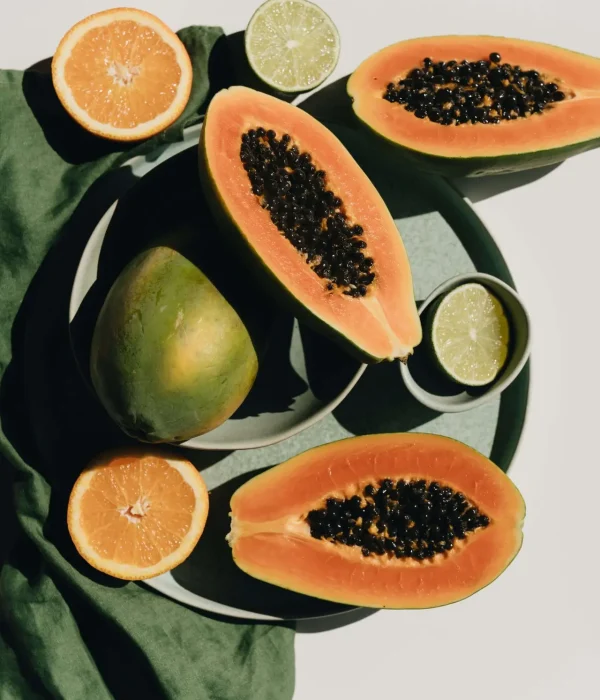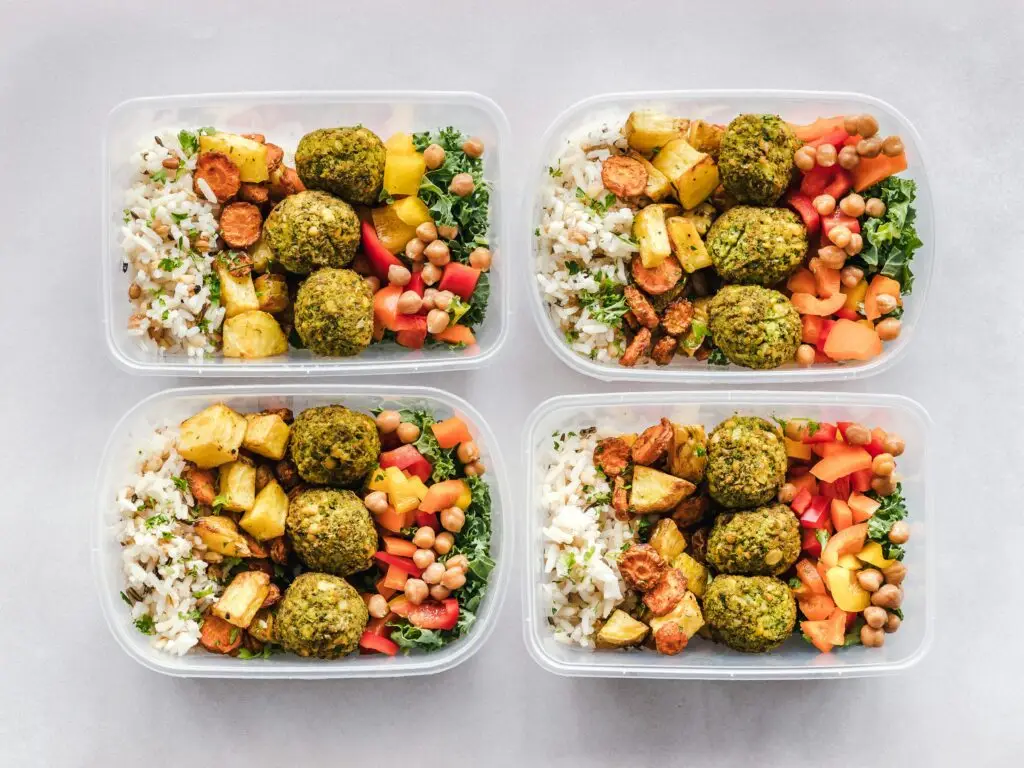
The plant-based lifestyle has gained tremendous popularity in recent years, with more people embracing veganism for ethical, environmental, and health reasons. However, transitioning to and maintaining a vegan diet requires careful planning to ensure optimal nutrition. This comprehensive guide will walk you through everything you need to know about vegan nutrition, from essential nutrients to meal planning and potential challenges.
As you embark on your vegan journey, it’s crucial to understand that a well-balanced plant-based diet can provide all the necessary nutrients for optimal health. By focusing on whole, nutrient-dense foods and being mindful of potential deficiencies, you can thrive on a vegan lifestyle. Let’s dive into the world of vegan nutrition and explore how to nourish your body with plant-based goodness.
Understanding the Vegan Diet
A vegan diet excludes all animal products, including meat, fish, dairy, eggs, and honey. Instead, it focuses on plant-based foods such as fruits, vegetables, grains, legumes, nuts, and seeds. This dietary approach aims to eliminate animal exploitation and cruelty while promoting environmental sustainability and personal health.
There are several variations of the vegan diet, each with its own unique focus:
- Whole food vegan diet: Emphasizes minimally processed plant foods
- Raw food vegan diet: Consists of raw or minimally heated plant foods
- High-carb, low-fat vegan diet: Focuses on fruits, vegetables, and starches while limiting fats
- Whole foods, plant-based (WFPB) diet: Emphasizes whole, minimally processed plant foods while avoiding refined oils and sugars
Regardless of the specific approach, a well-planned vegan diet can provide all the necessary nutrients for optimal health. However, it’s essential to understand the key components of vegan nutrition to ensure you’re meeting your body’s needs.
Essential Macronutrients for Vegans
Macronutrients are the building blocks of our diet, providing energy and supporting various bodily functions. Let’s explore how vegans can meet their macronutrient needs through plant-based sources:
Protein
Contrary to popular belief, it’s entirely possible to meet your protein needs on a vegan diet. Plant-based protein sources include:
- Legumes (beans, lentils, chickpeas)
- Soy products (tofu, tempeh, edamame)
- Seitan (wheat gluten)
- Quinoa
- Nuts and seeds
- Plant-based protein powders
Aim to include a variety of protein sources throughout the day to ensure you’re getting all essential amino acids. The recommended daily intake for protein is about 0.8 grams per kilogram of body weight, but active individuals may require more.
Carbohydrates
Carbohydrates are the body’s primary source of energy. Opt for complex carbohydrates from whole food sources, such as:
- Whole grains (oats, brown rice, quinoa, barley)
- Sweet potatoes and other starchy vegetables
- Fruits
- Legumes
These foods provide not only energy but also essential fiber, vitamins, and minerals. Aim to make carbohydrates about 45-65% of your total daily calorie intake.
Fats
Healthy fats are crucial for hormone production, nutrient absorption, and brain function. Vegan sources of healthy fats include:
- Avocados
- Nuts and seeds (walnuts, chia seeds, flaxseeds)
- Olive oil
- Coconut
- Nut butters
Pay special attention to omega-3 fatty acids, which are important for heart and brain health. Plant-based sources of omega-3s include flaxseeds, chia seeds, hemp seeds, and walnuts. Consider a vegan omega-3 supplement derived from algae if you’re concerned about meeting your needs.
Micronutrients: The Key to Optimal Vegan Health
While a well-planned vegan diet can provide most essential nutrients, there are some micronutrients that require special attention:
Vitamin B12
Vitamin B12 is crucial for nerve function and the formation of red blood cells. As it’s primarily found in animal products, vegans must rely on fortified foods or supplements. Good sources include:
- Fortified plant milk
- Nutritional yeast
- B12 supplements
It’s recommended that vegans take a B12 supplement or consume fortified foods regularly to prevent deficiency.
Iron
Plant-based iron (non-heme iron) is less readily absorbed than iron from animal sources. However, you can boost iron absorption by:
- Pairing iron-rich foods with vitamin C sources
- Avoiding tea and coffee with meals
- Using cast-iron cookware
Good vegan sources of iron include:
- Leafy greens (spinach, kale)
- Legumes
- Fortified cereals
- Dried fruits
- Pumpkin seeds
Calcium
While dairy is often touted as the best source of calcium, there are plenty of plant-based options:
- Leafy greens (kale, collard greens, bok choy)
- Fortified plant milk and juices
- Calcium-set tofu
- Almonds and almond butter
- Sesame seeds and tahini
Aim for 1000-1200 mg of calcium per day, depending on your age and gender.
Vitamin D
Vitamin D is essential for calcium absorption and bone health. While our bodies can produce vitamin D from sunlight exposure, many people (vegan or not) may need to supplement, especially in colder climates. Vegan sources include:
- Fortified plant milk
- Mushrooms exposed to UV light
- Vitamin D supplements (look for vegan D3 derived from lichen)
Zinc
Zinc is important for immune function and wound healing. Vegan sources include:
- Whole grains
- Legumes
- Nuts and seeds
- Fortified cereals
To enhance zinc absorption, consider soaking or sprouting nuts, seeds, and legumes before consuming.
Iodine
Iodine is crucial for thyroid function. Vegan sources include:
- Iodized salt
- Seaweed (nori, wakame)
- Fortified plant milk
Be cautious with seaweed consumption, as some varieties can contain excessive amounts of iodine.
Planning a Balanced Vegan Diet
Now that we’ve covered the essential nutrients, let’s explore how to put it all together in a balanced vegan meal plan:
Building a Nutritious Plate
Aim to include a variety of foods from each of these groups at every meal:
- Protein source (legumes, tofu, tempeh, seitan)
- Complex carbohydrates (whole grains, starchy vegetables)
- Healthy fats (avocado, nuts, seeds)
- Colorful vegetables and fruits
- Leafy greens
Sample Meal Ideas
Here are some nutritious vegan meal ideas to get you started:
Breakfast:
- Overnight oats with chia seeds, berries, and almond butter
- Tofu scramble with vegetables and whole grain toast
- Smoothie bowl with plant-based protein powder, fruits, and granola
Lunch:
- Buddha bowl with quinoa, roasted vegetables, chickpeas, and tahini dressing
- Lentil soup with a side salad and whole grain crackers
- Veggie-packed wrap with hummus and avocado
Dinner:
- Stir-fry with tofu, mixed vegetables, and brown rice
- Black bean and sweet potato tacos with guacamole
- Lentil and vegetable curry over cauliflower rice
Snacks:
- Apple slices with almond butter
- Homemade trail mix with nuts, seeds, and dried fruit
- Vegetable sticks with hummus
Supplementation for Vegans
While a well-planned vegan diet can provide most essential nutrients, some individuals may benefit from supplementation. Consider discussing the following supplements with a healthcare professional:
- Vitamin B12
- Vitamin D
- Omega-3 fatty acids (from algae oil)
- Iron (if levels are low)
- Zinc
- Iodine
Remember that individual needs may vary, and it’s always best to consult with a registered dietitian or healthcare provider before starting any new supplement regimen.
Potential Health Benefits of a Vegan Diet
When properly planned, a vegan diet can offer numerous health benefits:
Weight management: Vegan diets tend to be lower in calories and higher in fiber, which can aid in weight loss and maintenance.
Improved heart health: Plant-based diets are often associated with lower blood pressure, cholesterol levels, and reduced risk of heart disease.
Better blood sugar control: A vegan diet may help improve insulin sensitivity and reduce the risk of type 2 diabetes.
Reduced cancer risk: Some studies suggest that plant-based diets may lower the risk of certain types of cancer.
Improved digestive health: The high fiber content of a vegan diet can promote better digestion and a healthy gut microbiome.
Environmental sustainability: Choosing plant-based foods can significantly reduce your carbon footprint and contribute to environmental conservation.
Common Challenges and How to Overcome Them
While a vegan diet can be incredibly rewarding, it’s not without its challenges. Here are some common hurdles and tips to overcome them:
Social situations: Communicate your dietary needs in advance and offer to bring a dish to share at gatherings.
Dining out: Research vegan-friendly restaurants or check menus in advance. Many restaurants are happy to accommodate dietary restrictions if you ask.
Nutrient deficiencies: Stay informed about essential nutrients and consider working with a registered dietitian to ensure your diet is well-balanced.
Cravings for non-vegan foods: Explore vegan alternatives and focus on the abundance of delicious plant-based options available.
Meal planning and preparation: Batch cook and meal prep to save time during busy weeks.
Vegan Nutrition for Special Populations
Certain life stages and conditions may require additional considerations for vegan nutrition:
Pregnancy and Breastfeeding
Pregnant and breastfeeding individuals following a vegan diet should pay extra attention to:
- Protein intake
- Calcium and vitamin D
- Iron
- Vitamin B12
- Omega-3 fatty acids (DHA)
Consider working with a registered dietitian to ensure all nutritional needs are met during this crucial time.
Children and Adolescents
A well-planned vegan diet can be suitable for children and adolescents, but special attention should be paid to:
- Protein for growth and development
- Calcium and vitamin D for bone health
- Iron and zinc for cognitive development
- Vitamin B12
Regular monitoring by a pediatrician and consultation with a registered dietitian can help ensure optimal growth and development.
Athletes
Vegan athletes may need to increase their intake of:
- Protein for muscle recovery and growth
- Complex carbohydrates for energy
- Iron for oxygen transport
- Creatine (consider supplementation, as it’s not found in plant foods)
Working with a sports nutritionist can help vegan athletes optimize their diet for performance and recovery.
The Environmental Impact of Vegan Nutrition
Choosing a vegan diet can have a significant positive impact on the environment:
- Reduced greenhouse gas emissions
- Lower water usage
- Decreased deforestation
- Improved soil health
- Reduced pollution from animal agriculture
By opting for plant-based foods, you’re not only nourishing your body but also contributing to a more sustainable future for our planet.
Conclusion: Embracing Vegan Nutrition for Optimal Health
A well-planned vegan diet can provide all the necessary nutrients for optimal health while offering numerous benefits for personal well-being and environmental sustainability. By focusing on whole, nutrient-dense plant foods and being mindful of potential nutrient deficiencies, you can thrive on a vegan lifestyle.
Remember that transitioning to a vegan diet is a journey, and it’s okay to take it one step at a time. Start by incorporating more plant-based meals into your diet, experiment with new recipes, and gradually phase out animal products. With proper planning and a positive mindset, you can enjoy the many benefits of vegan nutrition while nourishing your body and supporting a more compassionate world.
As you embark on your vegan journey, stay curious, open-minded, and willing to learn. Consult with healthcare professionals, connect with other vegans for support and advice, and most importantly, listen to your body. With time and experience, you’ll discover the joys of plant-based eating and the profound impact it can have on your health, the environment, and the lives of animals.


